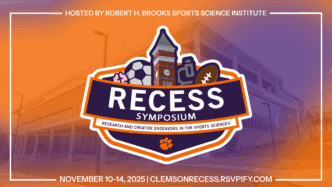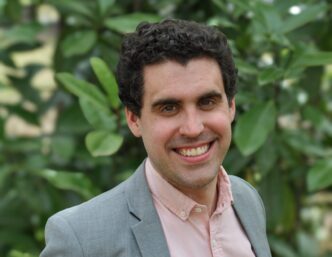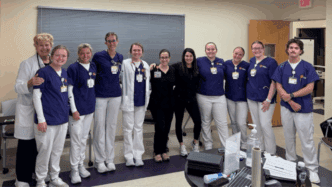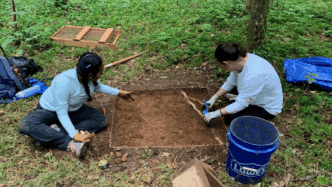Every semester senior nursing students are sent to an outdoor classroom to learn from the unlikeliest of teachers– horses.
For the past 15 years, School of Nursing students in their clinical mental health classes go to Reins of Life, a nonprofit in Georgia that offers equine therapy. Lecturer Lindsey Garrard is just one of the several faculty members who send their students to the horse barn for a day, so her students can see the full spectrum of treatments available to those who have a mental illness.
“It is so important to be aware of all of the resources that are available to this patient population,” Garrard said. “In my course, I try to arrange a variety of clinical rotations so that the students can get a well-rounded experience and see all aspects of mental health care.”
Reins of Life offers Equine Assisted Psychotherapy, which is a hands-on form of therapy where horses are involved in the sessions. The participants have a chance to reflect on what is happening in their life while working through various exercises with the horse, said Reins of Life director Cheryl Harris.
“Horses have an extraordinary ability to read our body language and pick up on messages we are sending which we are not always conscious we are doing,” Harris said. “Because of this, they start responding to us in familiar ways, reminding us of other people and things in our life. It is through this that horses become metaphors and provide us the opportunity to work on ourselves.”
During the students’ time at Reins of Life, they learn from Harris and her co-facilitator Amy Swails, associate licensed professional therapist, about equine therapy and how it’s helped many patients who have suffered from abuse, PTSD, eating disorders, behavioral and mental illnesses.

The students even get to participate in several of the activities that are part of an individual’s therapy session, such as an activity called Spiritual Grooming and Life’s Little Obstacles, a group activity in which they have to get a horse to jump over a small pole on the ground without touching or leading the horse. While this specific activity is used mostly for kids and teenagers with behavioral issues, senior Juanita Pacheco saw how it worked as a team-building activity.
“It was fascinating how this activity reveals a lot about a person’s personality and group dynamics,” Pacheco said. “I never thought of that as an assessment tool- but it seems to be a very effective and creative one.”
Life’s little obstacles are meant to encourage out of the box thinking by blocking the obvious solutions such as leading the horse or physically touching the horse and asking it to go where it needs to go.
“It opens their eyes to a new way of thinking,” Harris said.
During this activity, the students learn about the pressure and release system of working with horses and in a clinical setting with patients. Pressure and release are when pressure is applied to the horse until the horse does what is asked. This system is meant to be taken with little steps. When horses are under too much pressure, Harris said they just dig their heels in and refuse to move, and in a clinical space, sometimes like patients do. This exercise helped the students see that it’s okay to take little steps at a time, something that senior Reagan King will take with her through graduation and into her career.
“Sometimes, as nurses, we are just very loud and encouraging all the time to get to the end goal, instead of encouraging the patient just to take one step at a time,” King said.
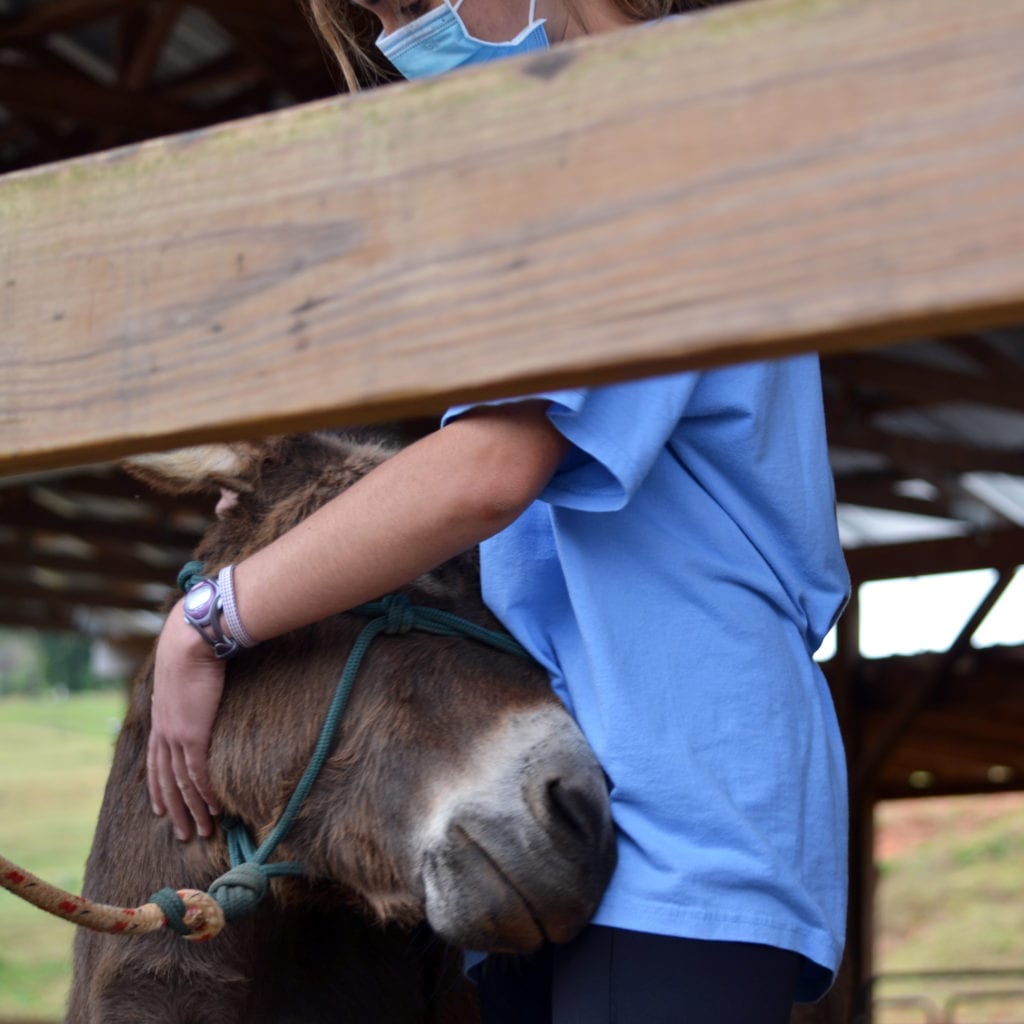
While the students learned other ways to listen to others in the Life’s Little Obstacles activity, the grooming activity that students participate in teaches them to listen to themselves.
The grooming is meant to be reflective, and as Harris walks them through it, she explains how each step of the grooming process is a metaphor for reflecting on life. As the patients groom the horse with a stiff-bristled brush, they are asked to think about what it is in their life that polishes them or what they need to shine. When they brush the horse’s mane and tail, they are asked to look into their lives to see where some knots can be untangled.
This experience and lesson in communication skills and teamwork are invaluable to the students, Garrard said.
“I especially like how the students work through the different activities used with the clients at Reins of Life,” Gerrard said. “The debriefing and processing with the staff afterward really help the students to gain an understanding of how this type of therapy works and why it works.”
In the short time the students are at the farm, the students, faculty, and Reins of Life staff see the benefits of spending a morning learning about equine therapy and how it could help some of their patients in their careers.
“Horses are magnificent creatures,” said senior Nina Kremser. “Their size and their shear strength demand respect, but at the same time, they are kind, loving, and smart. Horses have a silent way of connecting with people, and just their character can be a lesson to people.”
The School of Nursing is part of the University’s College of Behavioral, Social and Health Sciences (CBSHS). Established in July 2016, CBSHS is a 21st-century, land-grant college that combines work in seven disciplines – communication; nursing; parks, recreation and tourism management; political science; psychology; public health sciences; sociology, anthropology and criminal justice – to further its mission of “building people and communities” in South Carolina and beyond.


